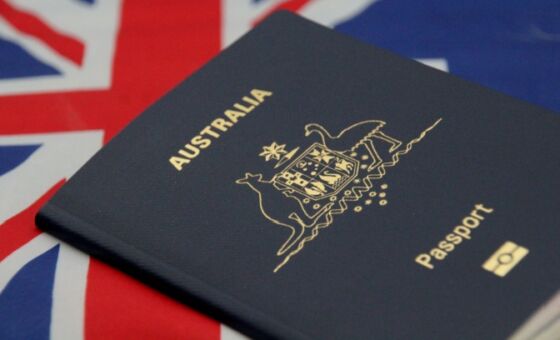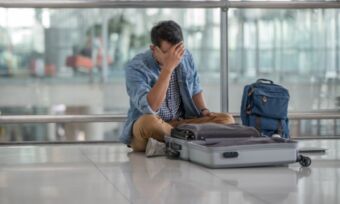Planning an international trip checklist: what do you need to do?
The excitement of planning an overseas trip could lead to you overlooking something important. To help simplify things, you can use this checklist before travelling overseas to make sure you’ve covered the essentials.
1. Check your passport is current and apply for a visa
Your passport is absolutely essential to travel; you can’t go overseas without one. Many countries require your passport to be valid for at least six months from your date of departure or entry to ensure you don’t get stuck overseas. If you lose your passport while overseas, it is possible to obtain an emergency replacement passport, although this can be costly.
Many countries also require a visa for entry. You can find out whether you will need a visa or not for specific countries by visiting their tourism websites. Get more information about travel visas on the DFAT (Department of Foreign Affairs and Trade) website or the SmartTraveller.gov.au page about that country.
2. Get travel insurance
Travel insurance is extremely important to take out before setting off on an overseas trip–the Australian Government’s Smartraveller website says that it’s “as important as a passport”. Travel insurance can protect you from significant financial strain during a medical or dental emergency and covers you for situations such as:
- Repatriation
- Lost or stolen luggage
- Cancelling your trip
- Legal liability
If you’re looking for a good deal, you can compare travel insurance policies on the Canstar website.
3. Consider how you’ll manage your money
To avoid getting stung by hefty fees from your debit or credit card provider, it’s worth planning how you’ll access money abroad. A popular option is a travel card, which can be either a travel money card, or a travel credit card or debit card.
You can also use your regular debit or credit card for purchases overseas, though it may lead to higher conversion or transaction fees. Travel cards allow you to convert your money into multiple currencies, often with lower fees. Some can be preloaded and topped up from your home bank account via BPAY from your existing bank app, making it easier to manage spending while traveling.
Some travellers may prefer to carry a mix of cards and a small amount of local cash for flexibility.
4. Plan your travel and budget
When budgeting, start with the big things: plane tickets, accommodation, and insurance. These will take the biggest chunk out of your bank account, so it’s important to know how much you’ll need straight away. You can then consider how much you might spend on eating, drinking, entertainment, shopping and other activities, and allocate a certain amount per day.
If you are hiring a rental car, consider booking ahead of time for a better deal and check whether an international driver’s licence is required. Some countries, like New Zealand, accept an Australian licence. Once you have an itinerary, you can also check for discounts and deals on attractions and experiences along the route.
5. Pack smart
One of the biggest mistakes people make when packing is underestimating (or over-estimating) the weather. Pack according to the weather at your destination, keeping in mind that temperatures can vary, and one country’s summer may not be like another’s.
Consider the activities you’ve planned at your destination. Items like hiking boots, swimwear and rain jackets may be useful depending on what you plan to do.
Pack versatile items so you can mix and match and leave some space in your luggage if you need to buy something during your trip.
6. Research your destination
The current climate doesn’t only refer to the weather–political landscapes are constantly changing across the globe, and a country that was safe one year might not be safe the next. Make sure you avoid countries and regions labelled “Do Not Travel” by the Department of Foreign Affairs and Trade (DFAT) on the SmartTraveller.gov.au website.
It’s also important to understand etiquette and cultural norms in your destination country–for example, how to be respectful if viewing temples in South-East Asia, or how tipping culture works in the US.
7. Make copies of important documents
After making sure that they’re up-to-date, be sure to make several copies of your passport, visa, travel insurance policy, and driver’s license, and keep them in several places. You may want to keep:
- One copy with you
- One copy at home
- One copy online in the cloud (e.g. Dropbox, Google Drive, or similar file-sharing services) in case you lose the physical copies
- One copy with your loved ones
8. Let people know and register your trip
In addition to letting your loved ones know your itinerary, you can also register your trip with DFAT online on the SmartTraveller.gov.au website. You can provide DFAT with information about your itinerary, your contact details while you are away, and more.
This means if anything goes wrong while you are away, like a natural disaster, civil disturbance, or a family issue back home, DFAT can contact you to let you know. It also means DFAT can let your emergency contacts know if something happens to you.
9. Consider your mobile and internet options
Data is extremely expensive when roaming overseas using an Australian carrier. You can avoid bill shock by setting up a data roaming pack on your phone. Alternatively, you may want to purchase a travel SIM card or a local SIM card at your destination, which can often be cheaper.
If you only plan to use Wi-Fi, switching off mobile data before leaving the country can help avoid accidental charges.
10. Get a health check and vaccinations before you go
It’s important to check if your destination of choice requires any shots from websites such as Travel Doctor or Travel Vaccination Clinic, and book an appointment to get necessary vaccinations as soon as you decide on your itinerary. Some common vaccinations require multiple shots spread out over a series of weeks, or they may not take effect immediately.
11. Prepare your home before a long trip
Before leaving for an extended overseas trip, you can take some steps to keep your home safe.
- Check that your home and contents insurance is up to date.
- Avoid posting your travel plans online.
- Remember to lock up securely, including all doors and windows.
- Consider installing a camera or alarm system with motion detection.
- Ask your local post office to hold your mail to prevent it from piling up.
- If possible, as a trusted friend or neighbour keep an eye on your property
12. Tie up loose ends
There are various other life admin tasks that you may need to take care of when travelling overseas. It can be important to:
- Contact your bank by phone or via app to avoid your cards getting frozen if you plan to use them
- Find someone to look after your pets
- Inform your place of employment of your planned holiday with exact dates
- Cancel or suspend your gym membership if your overseas trip is a long one
- Suspend your health insurance if your overseas trip is a long one
- Inform your landlord or real estate agent








